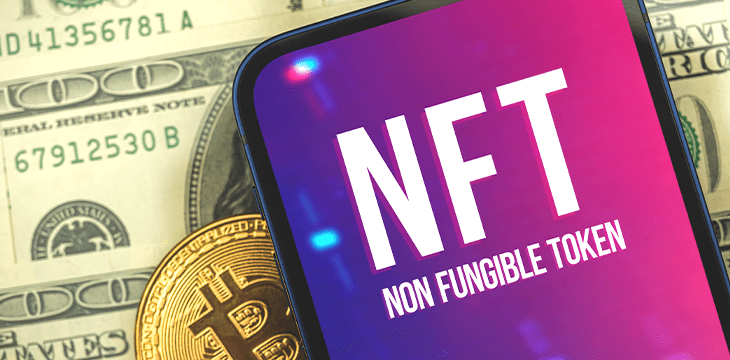|
Getting your Trinity Audio player ready...
|
Slowly but surely, governments worldwide are beginning to wake up to the schemes, scams, and criminal activity in the digital assets industry. This week, the U.S. Department of Treasury issued a warning that Non-Fungible Tokens (NFTs) could be used in money laundering. It’s something many who have been watching the activities in the NFT space for a while have concluded independently.
I have $2M in Ether.
I create an NFT piece.
I use my $2M to buy my own NFT.
I still have my $2M in ETH, and I also have an NFT piece that is worth $2M according to price history.
I sell my #NFT to someone for only $200K, or at a 90% discount!
Now I have $2.2M in ETH.
CtrlC+V— NikhilDPrince.crypto 🇮🇳 (@NikhilDPrince) April 10, 2021
This could be laundering, or it could just be a scam. Either way, it’s what going on!
What did the Treasury Department say about NFTs?
The Treasury acknowledged that NFTs offer new opportunities in the creative arts and media. However, it also warned that NFTs could allow criminals to use illicit funds to make seemingly legitimate art purchases.
The Treasury elaborated that the portable nature of NFTs, which can be moved internationally and instantly, makes them susceptible to being used in money laundering schemes. It noted the lack of financial, regulatory, or investigative costs of physical shipment as reasons why NFTs may be attractive to criminals wishing to launder funds.
Blockchain data platform Chainalysis aims to shed light on what’s going on across different chains, countered this by saying that NFTs represent a small portion of the total crime going on in the digital asset industry. Given the scale of crime occurring across the board, that doesn’t necessarily mean the level of criminality involved in NFTs is insignificant.
NFTs are ultimately terrible for laundering funds
While the Treasury is concerned about the potential for NFTs to be used in money laundering, it appears it understands something that the would-be criminals using it for such purposes don’t. In its report, the Treasury states:
“The exchange of an NFT transfers that ownership between digital wallets or smart contracts, and because they are blockchain based, NFTs are publicly verifiable, auditable, and digitally unique due to being derived cryptographically.”
In other words, there’s a digital trail for every transaction, and once a record of it is etched into a public blockchain, the evidence of that transaction is there forever.
In time, when the unhosted wallet rule kicks in in the USA and the European Union’s new rules banning anonymous transactions come into effect, either criminals will have valuable NFTs in wallets they won’t be able to sell, or their schemes will become immediately publicly visible to investigators who put the pieces together when they find out who owns which wallets.
Furthermore, when platforms such as Opensea become liable for handling the proceeds of crime, they’ll implement their own checks that will make it doubly hard for criminally linked NFTs to be bought and sold.
NFT buyers and traders should also be aware of the potential consequences of handling NFTs that may have been traded by criminals. While sane voices have been warning for years that there would be consequences to handling digital items linked to crime, some are still surprised when it happens to them.
Another happy BlockFi customer. pic.twitter.com/ljwodJR4r0
— Bitfinex'ed 🔥🐧 Κασσάνδρα 🏺 (@Bitfinexed) February 5, 2022
Be careful when buying and trading NFTs
While the case outlined in the tweet above is related to a user handling so-called ‘tainted coins’ and losing a fortune as a result, it’s not difficult to imagine a future where certain NFTs are deemed tainted, and therefore, worthless.
Of course, this doesn’t mean there’s no value in NFTs. They have a lot of potentials, and it would be foolish to throw the baby out with the bathwater. However, it does mean that buyers should be careful who they’re buying from and should, if possible, look into the history of the digital asset they are purchasing. Since there’s no way to know who’s selling you an item as things stand in the industry right now, buying NFTs in the current environment is always going to involve some level of risk.
Hopefully, in the not-too-distant future, all wallets will be linked to verified identities, and this will cease to be a worry. For now, you can bet that if the U.S. Department of Treasury is onto this, other governments are, too. Consider yourself warned and buy NFTs safely.
Watch: CoinGeek New York panel, Investigating Criminal Activity on the Blockchain

 03-01-2026
03-01-2026 




